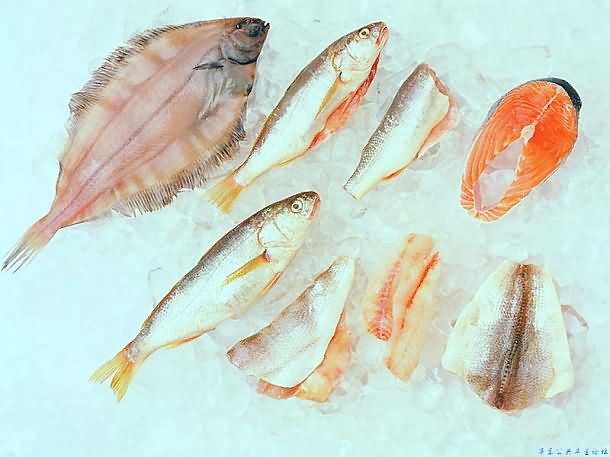
膳食中每天摄入500毫克ω-3脂肪酸(相当于每周两份富含脂肪的鱼),糖尿病视网膜病变要少48%。不能以某种成分的胶囊代替天然的鱼和坚果。
THURSDAY, Aug. 18, 2016(合众国际社UPI) 摘要_糖尿病人由于血液供应下降,导致视网膜病变是一种严重的并发症。是糖尿病最常见的致盲原因。
西班牙研究表明,一周吃两次鱼可以降低糖尿病患者失明的风险。
Sala Vila的团队以前专注研究病人低脂肪或植物性食物。这些研究对象是从早期研究中分离出来的,他们将西班牙居民和2型糖尿病患者分为三组,每一组给以不同的饮食。
第一组遵循低脂肪饮食,第二组为地中海饮食习惯(植物/无红肉)的饮食,辅以特级初榨橄榄油。第三组也随地中海饮食,并辅以每天30克ω-3丰富的核桃、榛子、杏仁。结果发现,第二组出现了视力下降的情况。
Sala Vila团队继续延续了这项研究工作,对年龄在55岁至80岁之间约3600的糖尿病男女患者在他们日常膳食中分配八种海鲜。跟踪调查研究5年。
那些膳食中每天摄入500毫克ω-3脂肪酸(相当于每周两份富含脂肪的鱼),糖尿病视网膜病变要少48%。
Sala Vila指出,可能是整体的ω-3脂肪酸的水平降低了全身炎症反应,鱼脂肪如何保护糖尿病患者的机制尚不清楚。
Sala Vila还警告不要理解为也可以补充ω-3脂肪酸来替代吃鱼了。
该研究结果表明的是添加特定的天然成分对人们健康的影响,而不是膳食补充剂的效果。不能以补充某种成分的胶囊来替代天然的鱼和坚果,因为还含有其他的重要营养素如核桃中的维生素E;鲑鱼、金枪鱼丰富的蛋白质。
THURSDAY, Aug. 18, 2016 -- Two servings of fish a week may be enough to lower the heightened risk for blindness that those with diabetes face, a new Spanish study suggests.
Diabetic retinopathy is a serious complication of type 2 diabetes resulting from a drop-off in blood supply to the patient's retina. According to lead researcher Aleix Sala-Vila, it is the most frequent cause of diabetes-related blindness.
"We wanted to [see] whether regular consumption of seafood -- fatty fish in particular -- in the absence of any advice to increase seafood consumption or fish oil supplementation decreased the risk of diabetic retinopathy," explained Sala-Vila, a researcher at the Centro de Investigacion Biomedica en Red in Barcelona.
Sala-Vila's team focused on patients whose overall diet was already composed of mostly low-fat or plant-based foods. That said, the team found that those who consumed at least two servings of fatty fish weekly had a lower risk for diabetic retinopathy than those whose diets included less fish.
Study participants were drawn from an earlier trial that had divided Spanish residents with type 2 diabetes into three different groups, each assigned to a different diet.
The first followed a low-fat diet. The second followed a Mediterranean (plant-based/red meat-free) diet, supplemented with extra virgin olive oil. And the third also followed a Mediterranean diet, supplemented by 30 grams a day of omega-3 rich walnuts, hazelnuts, and almonds.
That study found it was those in the second group who saw their vision risks fall.
Working with the same pool of participants, Sala-Vila's team then asked about 3,600 diabetic men and women between the ages of 55 and 80 to report how often they consumed eight types of seafood before embarking on their assigned diets.
Once on their diets, Sala-Vila's team tracked seafood consumption habits for nearly five years.
The result: The team found that those who routinely consumed 500 milligrams (mg) a day of omega-3 fatty acid in their diets (equal to two servings of fatty fish per week) were 48 percent less likely to develop diabetic retinopathy than those who consumed less.
Why? Sala-Vila pointed to a drop in systemic inflammation that occurs as overall omega-3 levels go up.
Whether diabetics might realize even more protection by further increasing fatty fish consumption remains unclear, he said.
Sala-Vila also cautioned against interpreting the findings to mean that omega-3 supplements do the trick as well as eating fish did.
That point was seconded by Dr. Michael Larsen, a professor of clinical ophthalmology at the University of Copenhagen in Denmark, and author of an accompanying editorial.
"The study examined the effect of adding specific natural components to people's diet, not the effect of dietary supplements," Larsen noted. "[And] unsaturated fats tend to become rancid if you try to isolate them, so we cannot equate the use of supplements in capsules to authentic fish and nuts."
Lona Sandon, an assistant professor in the department of clinical nutrition with the school of health professions at UT Southwestern in Dallas, said, "Fish oil supplements appear to be safe," but there are no substitutes for omega-3 rich foods.
"Including omega-3 rich foods in your daily diet is the best place to start, as supplements rarely make up for a poor underlying diet," she said. "Also, the foods rich in omega-3s are also rich in other key nutrients that promote health such as vitamin E [walnuts] and protein [salmon, tuna]."




